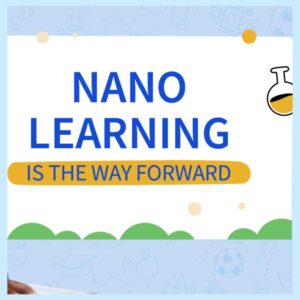Slow learning is often misunderstood as a barrier to success. However, many slow learners who faced learning difficulties in their early years went on to achieve great success in their lives. Their stories remind us that with persistence, determination, and the right support, slow learners do not face an obstacle but rather a unique path to greatness. Here, we will explore the journeys of several remarkable personalities who overcame their learning challenges to make significant contributions to the world.

Albert Einstein- Slow Learner with Delayed Speech
Albert Einstein, one of the greatest physicists of all time, struggled with slow learning during his childhood. As one of the slow learners, he had delayed speech development and was slow in learning to read. His teachers thought he was lazy and would never amount to much. However, Einstein’s curiosity and passion for understanding the universe never wavered. He went on to develop the theory of relativity, which revolutionized the field of physics. His story is a powerful example of how slow learners in childhood do not define a person’s potential.
Inventor of Light Bulb was Considered to be A Slow Learner
Thomas Edison, the inventor of the light bulb and many other devices, was also considered one of the slow learners. He was labeled as “addled” by his teachers, meaning they thought he was mentally slow. Edison’s mother took him out of school and taught him at home. She nurtured his curiosity and allowed him to explore his interests, which led him to become one of the most prolific inventors in history. Edison’s story shows how important a supportive environment is for slow learners.
Richard Branson- Had difficulties Due to Dyslexia
Richard Branson, the founder of the Virgin Group, struggled with dyslexia, a learning disorder that affects reading and writing. Branson found school very challenging and was often seen as a slow learner. However, his creativity and entrepreneurial spirit led him to build a multi-billion-dollar business empire. Branson’s success is a testament to the idea that traditional academic success is not the only path to achievement for slow learners.
Winston Churchill- A Slow Learner Who Became the UK PM
Winston Churchill, the Prime Minister of the United Kingdom during World War II, had a learning disability that made school difficult for him. He struggled with reading and writing, and his teachers thought he was not very intelligent. Despite these challenges, Churchill’s determination and leadership qualities helped him lead Britain to victory during one of the most challenging times in history. His story illustrates that leadership and success are not limited by academic struggles, especially for slow learners.
Agatha Christie- Author with Learning Difficulties
Agatha Christie, one of the best-selling authors of all time, also had learning difficulties. As one of the slow learners, she struggled with dysgraphia, a condition that affects writing ability. Despite this, Christie’s imagination and storytelling skills were unparalleled. She wrote 66 detective novels and created some of the most famous fictional characters, including Hercule Poirot and Miss Marple. Christie’s story demonstrates that creativity and success can flourish even when one faces challenges, as slow learners often do.
Henry Ford- Found Traditional Education Difficult
Henry Ford, the founder of the Ford Motor Company, had a slow start in school and struggled with traditional education. However, he was always curious about how things worked and was determined to learn in his own way. Ford’s innovative thinking led to the development of the assembly line, which revolutionized the automobile industry and made cars accessible to the masses. His story shows that unconventional learning paths, often taken by slow learners, can lead to extraordinary achievements.
Leonardo da Vinci- Slow Learner With A Brilliant Mind
Leonardo da Vinci, one of the most brilliant minds in history, is believed to have been one of the slow learners. He was left-handed and possibly dyslexic, which made traditional learning difficult for him. However, da Vinci’s curiosity and genius were not bound by his slow learning. He excelled in multiple fields, including art, science, and engineering. His story is a reminder that slow learners are not limited by their pace but rather have a different way of thinking and creating.
Conclusion
The stories of these remarkable individuals teach us that slow learners do not determine their future. With determination, creativity, and the right support, slow learners can achieve great success. Their journeys inspire us to look beyond conventional measures of intelligence and success and to value the unique contributions that slow learners can make to the world. If you or someone you know is a slow learner, remember that the road to success may be different, but it is no less valuable.
Schoolbase supports you in maximizing homeschooling and NIOS education while staying engaged in your child’s learning. We provide various services for NIOS and slow learners. For more information, click here. For any inquiries, contact us at +6361938556.